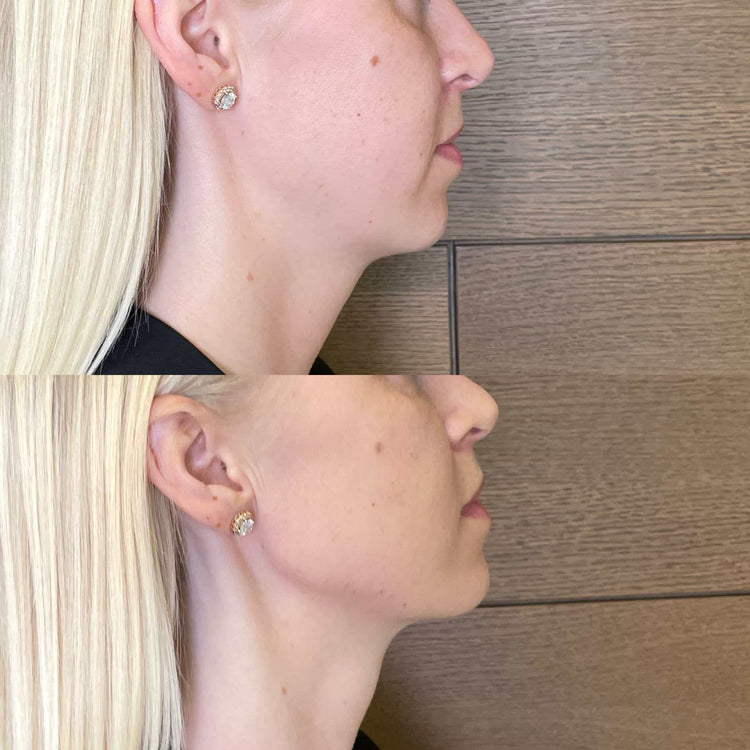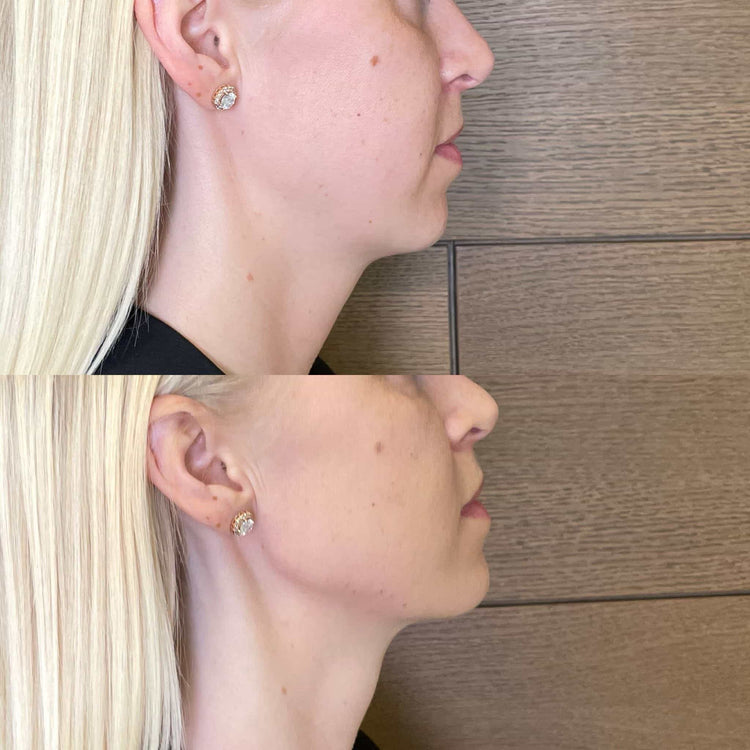Swelling Management
Swelling is a normal part of the healing process following jaw filler procedures. Understanding how to manage this swelling effectively can significantly contribute to a smoother recovery and optimal aesthetic results.
Ice Application
Ice application is a valuable tool for managing swelling after jaw filler treatments. Applying ice packs wrapped in a thin towel to the treated area for 15-20 minutes at a time, several times a day, can help reduce inflammation and minimize discomfort.
It’s important to remember that excessive ice application can damage the skin, so it’s crucial to avoid direct contact between the ice and your skin.
Additionally, refrain from massaging the treated area, as this can further irritate the tissues and exacerbate swelling.
Elevation
Swelling is a normal part of the healing process following jaw filler procedures. Understanding how to manage this swelling effectively can significantly contribute to a smoother recovery and optimal aesthetic results.
Ice application is a valuable tool for managing swelling after jaw filler treatments. Applying ice packs wrapped in a thin towel to the treated area for 15-20 minutes at a time, several times a day, can help reduce inflammation and minimize discomfort. Remember that excessive ice application can damage the skin, so it’s crucial to avoid direct contact between the ice and your skin.
- Avoid massaging the treated area as this can further irritate tissues and exacerbate swelling
- Elevate your head while sleeping to reduce fluid accumulation in the face.
Pain Relief Medication
Pain relief medication, such as over-the-counter pain relievers like ibuprofen or acetaminophen, can be helpful in managing discomfort after jaw filler treatment. Always follow the recommended dosage instructions and consult with a healthcare professional if you have any concerns or pre-existing medical conditions.
It’s important to note that certain medications may interact with anesthetic agents used during the procedure, so it’s best to discuss your medication use with your injector beforehand.
Infection Prevention
Aftercare is crucial for achieving optimal results and minimizing complications following jaw filler procedures.
Oral Hygiene
Infection prevention is paramount after any cosmetic procedure, including jaw filler injections. Maintain good oral hygiene by brushing your teeth twice daily and flossing at least once a day to remove food particles and bacteria that could lead to infection.
Avoid using straws or smoking as these activities can increase the risk of introducing bacteria into the injection site.
Keep the treated area clean and dry. Gently cleanse the area with mild soap and water if needed, but avoid harsh scrubbing or rubbing.
Be sure to follow all post-procedure instructions provided by your injector regarding wound care, activity restrictions, and medications.
If you notice any signs of infection, such as redness, swelling, pain, warmth, or discharge, contact your injector immediately.
Signs of Infection
Infection prevention is crucial after jaw filler procedures to ensure proper healing and minimize the risk of complications.
Signs of infection can include redness, swelling, pain, warmth, and discharge at the injection site. It’s important to be vigilant and contact your injector immediately if you notice any of these signs.
Maintaining good oral hygiene is essential. Brush your teeth twice daily and floss at least once a day to remove food particles and bacteria that could lead to infection.

Avoid activities that increase the risk of introducing bacteria into the injection site, such as using straws or smoking.
Dietary Restrictions
Dietary restrictions following jaw filler procedures are generally not strictly enforced. However, certain foods and drinks may temporarily affect swelling or discomfort.
Foods to Avoid
Dietary restrictions following jaw filler procedures are generally not strictly enforced.
- It is recommended to avoid extremely hot or spicy foods as they can irritate the treated area.
- Salty foods can contribute to fluid retention, which may exacerbate swelling.
- Alcohol consumption should be limited as it can dehydrate the body and potentially interfere with healing.
Foods to Eat
Dietary restrictions following jaw filler procedures are generally not strictly enforced.
It is recommended to avoid extremely hot or spicy foods as they can irritate the treated area.
Salty foods can contribute to fluid retention, which may exacerbate swelling.
Alcohol consumption should be limited as it can dehydrate the body and potentially interfere with healing.
Activity Limitations
Following jaw filler treatment, activity limitations play a crucial role in ensuring proper healing and minimizing complications.
Rest
Strenuous activity should be avoided for at least a week following jaw filler injections to prevent swelling and bruising from worsening.
Avoid activities that involve intense facial movements or stretching, such as vigorous exercise, weightlifting, or yoga.
It’s also important to avoid touching or rubbing the treated area excessively.
Rest is essential for recovery after jaw filler treatments. Getting adequate sleep allows your body to focus on healing and minimizing inflammation.
Exercise
Activity limitations are an important aspect of recovering well after jaw filler treatment.

Strenuous activities should be avoided for at least a week following the procedure to minimize swelling and bruising. This includes intense exercise, weightlifting, or any activity that requires forceful facial movements.
Gentle exercise, such as walking, is generally acceptable after a few days, but listen to your body and avoid anything that causes discomfort.
Strenuous Activities

Activity limitations are an important aspect of recovering well after jaw filler treatment. Strenuous activities should be avoided for at least a week following the procedure to minimize swelling and bruising. This includes intense exercise, weightlifting, or any activity that requires forceful facial movements. Gentle exercise, such as walking, is generally acceptable after a few days, but listen to your body and avoid anything that causes discomfort.
Follow-Up Appointments
Aftercare instructions play a crucial role in achieving optimal results and ensuring a smooth recovery from jaw filler procedures.
Schedule & Importance
Follow-up appointments are an essential part of the jaw filler treatment process.
These appointments allow your injector to assess your healing progress, monitor for any complications, and adjust treatment if necessary.
Typically, you’ll have a follow-up appointment within a few days after your initial procedure to address any immediate concerns or side effects.
Further appointments may be scheduled as needed throughout the healing process, which can take several weeks.
Adhering to the schedule of follow-up appointments is crucial for ensuring optimal results and minimizing potential complications.
Long-Term Care
Long-term care encompasses a range of services designed to assist individuals with chronic illnesses, disabilities, or age-related needs who require assistance with daily living activities. These services can vary widely depending on the individual’s specific requirements and may include medical care, personal care, social support, and housing assistance.
Sun Protection
Long-term care is essential for individuals who require ongoing assistance with daily tasks due to chronic illnesses, disabilities, or aging.
It encompasses a wide range of services, including medical care, personal care, social support, and housing assistance.
These services are tailored to meet the individual needs of each person receiving care.
Protecting your skin from the sun’s harmful rays is crucial for maintaining healthy and youthful skin.
Sunscreen with an SPF of 30 or higher should be applied liberally and reapplied every two hours, especially after swimming or sweating.
Seek shade during peak sun hours (10 am to 4 pm) when the sun’s rays are strongest.
Wear protective clothing, such as wide-brimmed hats and long sleeves, to minimize sun exposure.
Regular skin checks can help detect any suspicious moles or lesions early on.
Touch and Massage Techniques
Touch and massage techniques are important aspects of long-term care, offering various benefits for individuals receiving care.
Gentle touch can provide comfort, reduce anxiety, and promote relaxation. Massage therapy can alleviate muscle tension, improve circulation, and enhance overall well-being.
For individuals with cognitive impairment, touch can help stimulate sensory input and enhance communication. It can also provide a sense of security and connection.
When implementing touch and massage techniques in a long-term care setting, it’s essential to prioritize the individual’s comfort and preferences.
Always obtain consent before initiating any touch or massage therapy. Be mindful of pressure levels and adapt techniques based on the person’s responses.
Regularly assess the individual’s condition and adjust the type and intensity of touch accordingly.
Communication is key. Encourage open dialogue with the individual to understand their preferences and any sensitivities they may have.
Define your jawline with jaw fillers from Dr. Laura Geige at It’s Me & You Clinic
- Skin Treatment & Skincare Consultations Near Reigate, Surrey - November 12, 2025
- Why CBD Gummies Are Becoming A Must-Have For A Healthy Lifestyle - November 9, 2025
- What Is The Best Filler To Plump Your Face? - November 8, 2025
